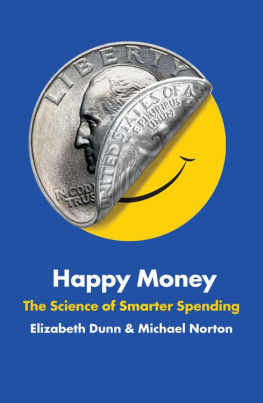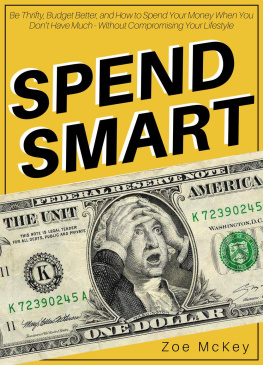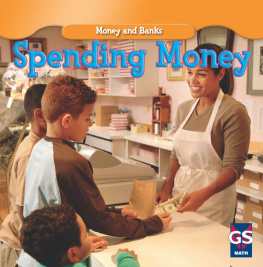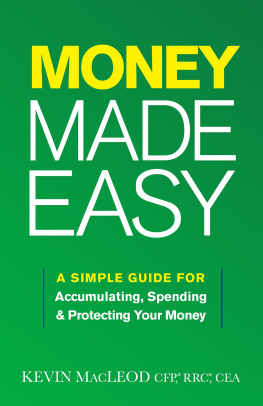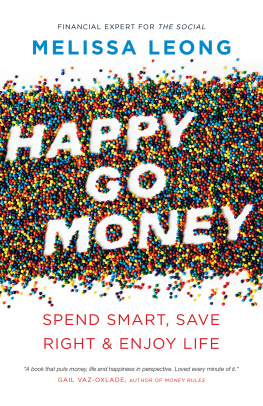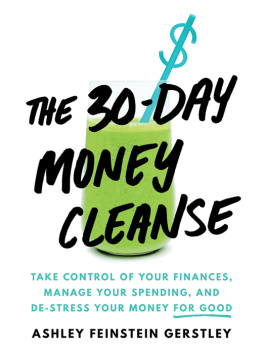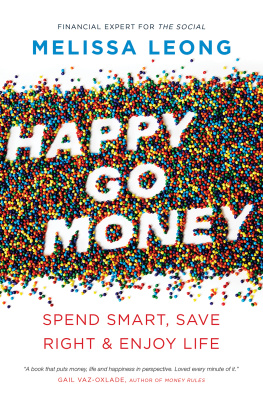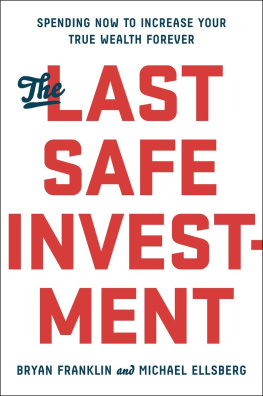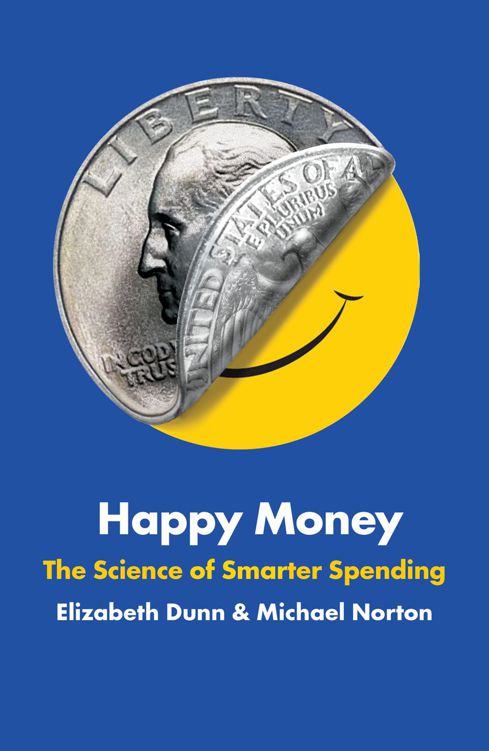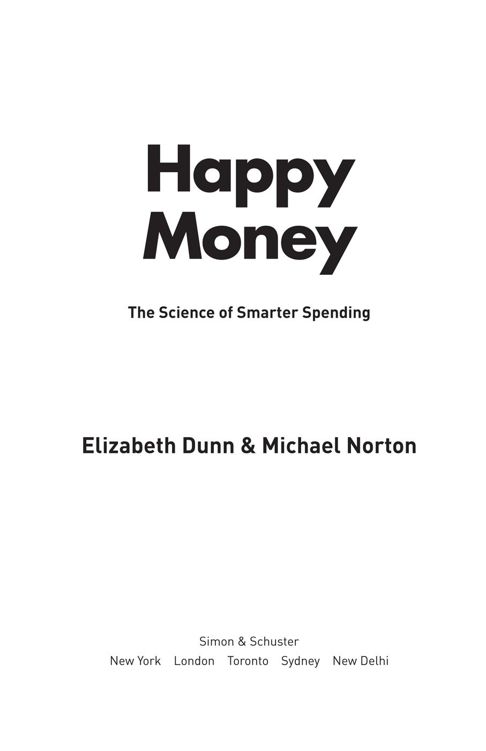Thank you for downloading this Simon & Schuster eBook.
Join our mailing list and get updates on new releases, deals, bonus content and other great books from Simon & Schuster.
C LICK H ERE T O S IGN U P
or visit us online to sign up at
eBookNews.SimonandSchuster.com
Contents
To my mother, Winifred Brand, who taught me my first lessons in happiness.
Liz
To my grandmother, Delia Irwin, who taught me that theres more to being happy than being smart.
</</span>
Prologue
After a decade spent earning degrees, Elizabeth Dunn experienced a major life change. She started earning money. As a young professor, Liz suddenly skyrocketed all the way to an average adult income, and began to wonder what to do with her newfound wealth. Having just completed her Ph.D. in social psychology, Liz did what only a true academic would: she turned to the scientific literature for guidance. She found about seventeen thousand articles on the relationship between money and happiness, many of which seemed to suggest that additional income provides surprisingly little additional happiness. But, she wondered, just because money often fails to buy happiness, does that mean that it cant ? What if people spent their money differentlyand better?
Liz called up her friend Michael Norton. The two had met during graduate school at an academic summer camp (think band campbut nerdier). Liz admired Mikes willingness to tackle wacky questions, such as How do people think wealth should be distributed? and At what age do kids become hypocrites? In his postcamp yearsand to the surprise of his entire extended familyMike had become a professor at Harvard Business School.
Both gainfully employed for the first time, we decided to work together to understand what grown-ups usually do with their money. Most importantly, we wanted to know if people could spend their money in less typical, but happier ways. Together we started doling out cash to strangers. But there was a catch: rather than letting them spend it however they wanted, we made them spend it how we wanted. Well tell you the whole story later in the book, but our first discoveries were promising: changing the way people spent their money altered their happiness over the course of the day. And we saw this effect even when people spent as little as $5. Since then we have expanded and broadened our research on the science of spending to diverse regionshttp://www.theurbancountry.com/2011/05/americans-work-2-hours-each-day-to-pay.htmlle appreciate of the world, from Belgium to East Africa. We have taken our work under the skin, demonstrating that everyday spending choices unleash a cascade of biological and emotional effectsdetectable right down to saliva. And we have worked with organizations ranging from a recreational dodge ball league to the number-one restaurant in the worldFerran Adris elBullito examine how shifting the way individuals spend money influences the success of teams and companies.
Our research has been featured in media outlets ranging from National Public Radio and the Harvard Business Review to the Hindustan Times and The Tonight Show with Jay Leno . One fun side benefit of this media exposure is that we often get feedback from self-appointed pundits. The comments below appeared in response to a
If I won the lottery I would take it upon myself to try and teach people the value of money. For example, I would walk up to people on the street and hold out a couple hundred bucks and say Here, you want this! When they reached for it I would yank it back and be like... Yeah right! What are you crazy? Do you think that people just wake up and get handed huge sums of money! Of course I wouldnt tell them that I won the lottery because that kind of defeats the lesson Im trying to convey.
I would just build a fort, completely made of money, and hide in it.
I would fill a big bath tub with money and git in the tub while smoking a big fat cigar and sipping a glass of champagne. Then Id have a picture taken and dozens of 8x10 glossies made. Anyone begging for money or trying to extort from me would receive a copy of the picture and nothing else.
When I win I am going to buy my own little mountain and have a little house on top.
These diverse plans share two striking similarities: these would-be lottery winners planned to use the money for stuff (forts, champagne, and mountains) for themselves and themselves alone (taunting others and buying isolation). As it turns out, some of these schemes are not just unproductive for happiness, but counterproductive . Shifting from buying stuff to buying experiences, and from spending on yourself to spending on others, can have a dramatic impact on happiness.
Why Focus on Spending Differently Rather than Earning More?
Every large bookstore has a shelf filled with books designed to help you get more money. By focusing on how to spend the money you have rather than how to accumulate more of it, our perspective departs from the obsession with chasing increased wealth in the pursuit of happiness. New research shows that greater wealth often fails to provide as much happiness as many people expect. In a national sample of Americans, individuals thought that their satisfaction with life would double if they made $55,000 rather than $25,000: twice as much money, twice as much happy.
Although money can provide all kinds of wonderful things, from tastier food to safer neighborhoods, wealth comes at a cost. Just thinking about wealth can push us away from the kinds of behaviors that promote happinesssuch as playing nicely with others.with friends. This research helps to explain why our would-be lottery winners sought isolation. Just being reminded of wealth can propel people to distance themselves from others, undermining happiness.
Even though weve read all of the relevant research, and conducted some of it ourselves, we havent turned down any raises. So, rather than suggest that you stop trying to get more money, our goal is to help you use the money you have to get more happiness. And insights into how to make yourself happier are also relevant for any organization in the business of trying to make others happy. Well offer guidance on structuring employee and customer experiences to create the largest impact on their happiness and satisfaction. Whether youre a massage therapist, travel agent, or CEO, well help you provide your colleagues and clients with the most happiness for every dollar you spend on themand for every dollar they spend with you.
The Principles
In each chapter, well focus on one of five key principles of happy money and help you understand how, when, and why it works so that you can apply it in your personal and professional life.
Buy Experiences (Chapter One). Most Americans describe owning a home as an essential component of the American dream. But recent happiness research suggests that home ownership is far from dreamy. Material things (from beautiful homes to fancy pens) turn out to provide less happiness than experiential purchases (like trips, concerts, and special meals). Whether youre spending $2 or $200,000, buying experiences rather than material goods can inoculate you against buyers remorse. Not all experiences are created equal, and well highlight the kinds of experiences, large and small, most likely to provide happiness. Surprisingly, even experiences that seem a little painful can produce lasting pleasure. Well show how, by harnessing the power of experiences, an entrepreneur named Will Dean convinced people to pay him for the privilege of crawling through pits of mud.

